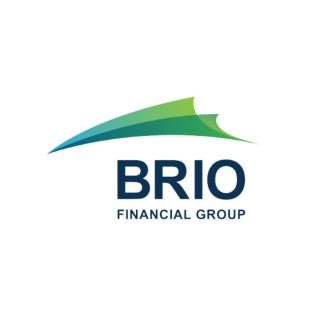
What is the Value of Your Business
by Brandon Miller on Jan 10, 2024
What is the Value of Your Business?
Presented by Brio Financial Group
Breaking Down The Basics
In the second quarter of 2023, more than 2,300 small businesses were sold. The median sale price was roughly $300,000, down 14% from the same time last year.1
As a business owner, ascertaining the value of your business is important for a variety of reasons, including business succession, estate tax estimates, or qualifying for a loan.
There are a number of valuation techniques, ranging from the simple to the very complex. Outlined below are three different approaches to valuing a business.
Asset Based: Calculates the value of all tangible and intangible assets held by the business. This approach ignores the future earning potential of the company. Thus, a pure asset-based valuation model is often used for companies that are bankrupt or looking to liquidate.
Earnings Based: Seeks to arrive at a business’ value by applying a multiple to normalized earnings, i.e., earnings adjusted to subtract owner’s compensation and related expenses. The multiplier can vary substantially, depending upon the industry and the outlook for the business.
Market Based: Compares the business to recent sales of similar companies.
Business valuation is not just a formulaic exercise. For instance, there is a value to the business of being a “going concern” as opposed to the start-up alternative. Ownership percentage will also matter; purchasing a minority share that has limited control may result in a discount to the actual value. The prospects for the business can impact its value. A greater premium will likely apply to a company engaged in a leading-edge technology than it would to one involved in a mature market.
Valuing a small business is not an exact science. Some aspects of the valuation may be debatable (e.g., the remaining life expectancy of a machine), while other aspects may be positively subjective (e.g., the value of the company’s reputation).
Willing Seller & Buyer
The true value of anything can only be determined when a willing seller and a willing buyer agree on a price of exchange. As a consequence, any valuation exercise may yield only a rough estimate.
Before moving forward with a business valuation, consider working with legal and tax professionals who are familiar with the process. Also, a qualified business appraiser may be able to offer some valuable insight.
The content is developed from sources believed to be providing accurate information. The information in this material is not intended as tax or legal advice. It may not be used for the purpose of avoiding any federal tax penalties. Please consult legal or tax professionals for specific information regarding your individual situation. This material was developed and produced by FMG Suite to provide information on a topic that may be of interest. FMG, LLC, is not affiliated with the named broker-dealer, state- or SEC-registered investment advisory firm. The opinions expressed and material provided are for general information, and should not be considered a solicitation for the purchase or sale of any security. Copyright 2023 FMG Suite.
Brio Financial Group is a registered investment adviser. SEC Registration does not constitute an endorsement of Brio by the SEC nor does it indicate that Brio has attained a particular level of skill or ability. Advisory services are only offered to clients or prospective clients where Brio Financial Group and its representatives are properly licensed or exempt from licensure. No advice may be rendered by Brio Financial Group unless a client service agreement is in place.
